The Ministry of ICT has declared digital literacy a fundamental human right and a key enabler for national development, following the POTRAZ Digital Literacy and Digital Skills Assessment: Research dissemination workshop.
Delivering a speech on behalf of ICT Permanent Secretary Beaullar Chirume, Mrs Chumoto, Director of Strategic Planning, Policy, Monitoring and Evaluation, said the study reflects Zimbabwe’s commitment to inclusive, evidence-based digital transformation and will shape national policy under the upcoming National Development Strategy 2 (NDS2).
“Digital literacy is not a privilege, it is a right,” said Chumoto. “It is not just about knowing how to use a phone or computer, but about having the tools to participate, to create, to innovate, and to thrive in the 21st century.”
By Ruvarashe Gora
Held under the theme “Digital Skills for All: Research Insights for Inclusive Progress”, the workshop brought together government officials, academic institutions, civil society organisations and private sector actors. The study, conducted by Midlands State University (MSU) on behalf of POTRAZ, assessed the digital capabilities and readiness of Zimbabweans across all provinces, sectors and age groups.
According to the Ministry, the research serves as more than a technical report, it’s a strategic blueprint for closing the digital divide and ensuring no one is left behind in the global Fourth Industrial Revolution, where AI, automation, cloud computing and blockchain are reshaping economies and societies.
Digital literacy is now seen as a “foundational skill,” on par with reading and writing. The speech warned that without digital empowerment, entire communities would remain excluded not only from technology, but also from economic participation, governance, and social progress.
“From e-government services and e-commerce to agriculture, education and small enterprise development, digital tools are gateways to opportunity,” said Chumoto. “But without the skills to use them meaningfully and safely, those opportunities are lost.”
She noted that while many organisations have been offering digital training, the absence of consolidated data had made it difficult to track national progress. The 2025 assessment addresses that gap, providing a baseline that will inform KPIs under NDS2, including proposed targets around digital skills and digital rights.
Chumoto also highlighted how the dissemination workshop should not be viewed as an end, but as the beginning of a new phase in Zimbabwe’s digital development agenda. She urged participants to translate the research insights into real-world policies, programmes and partnerships that deliver measurable impact.
“This is the moment to turn information into transformation. The NGLSA 2025 has given us the map, now we must chart the course, mobilise resources and act with urgency.”
The Ministry also raised concerns about rising digital inequality, cyber-misinformation, and ethical risks posed by emerging technologies. The Permanent Secretary’s speech stressed the importance of promoting digital citizenship, digital responsibility and resilience, especially among youth and vulnerable populations.
A key takeaway was the importance of collaboration. The assessment process brought together government, academia, NGOs and business, a multi-stakeholder approach which the Ministry said must continue to guide Zimbabwe’s digital journey.
“Digital transformation is not the responsibility of any one institution,” said Chumoto. “It is a shared national agenda that demands cooperation and alignment across all sectors.”
As Zimbabwe intensifies preparations for NDS2, the Ministry pledged to use the assessment findings to drive targeted interventions that reach people where they are. It also expressed gratitude to POTRAZ and MSU for their technical leadership throughout the research process.
“Together, let us rise to the challenge, close the digital divide, and build a smarter, more inclusive Zimbabwe for all”.


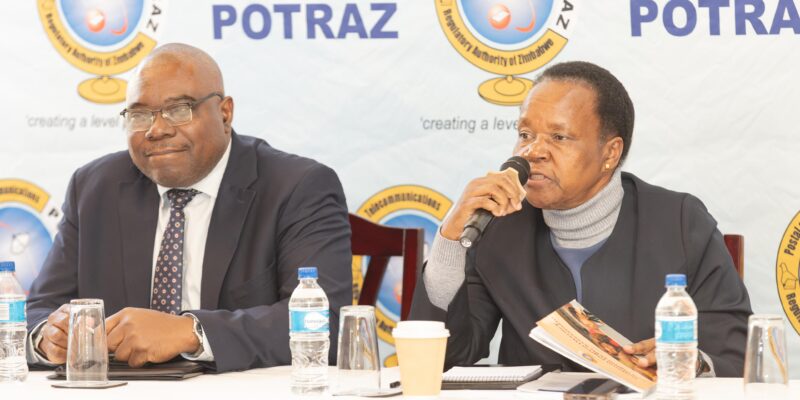
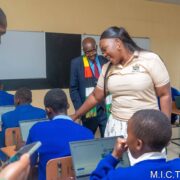
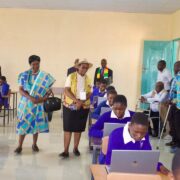

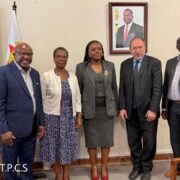


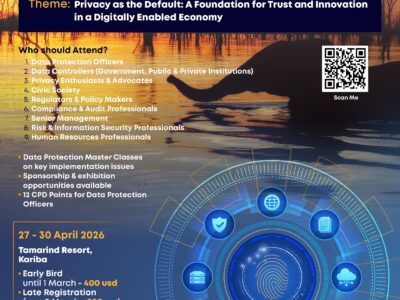
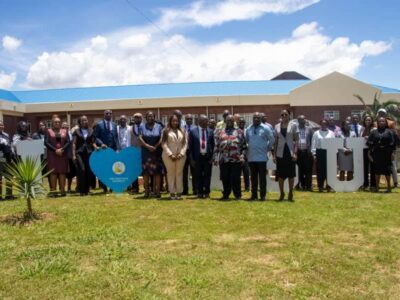



Comments